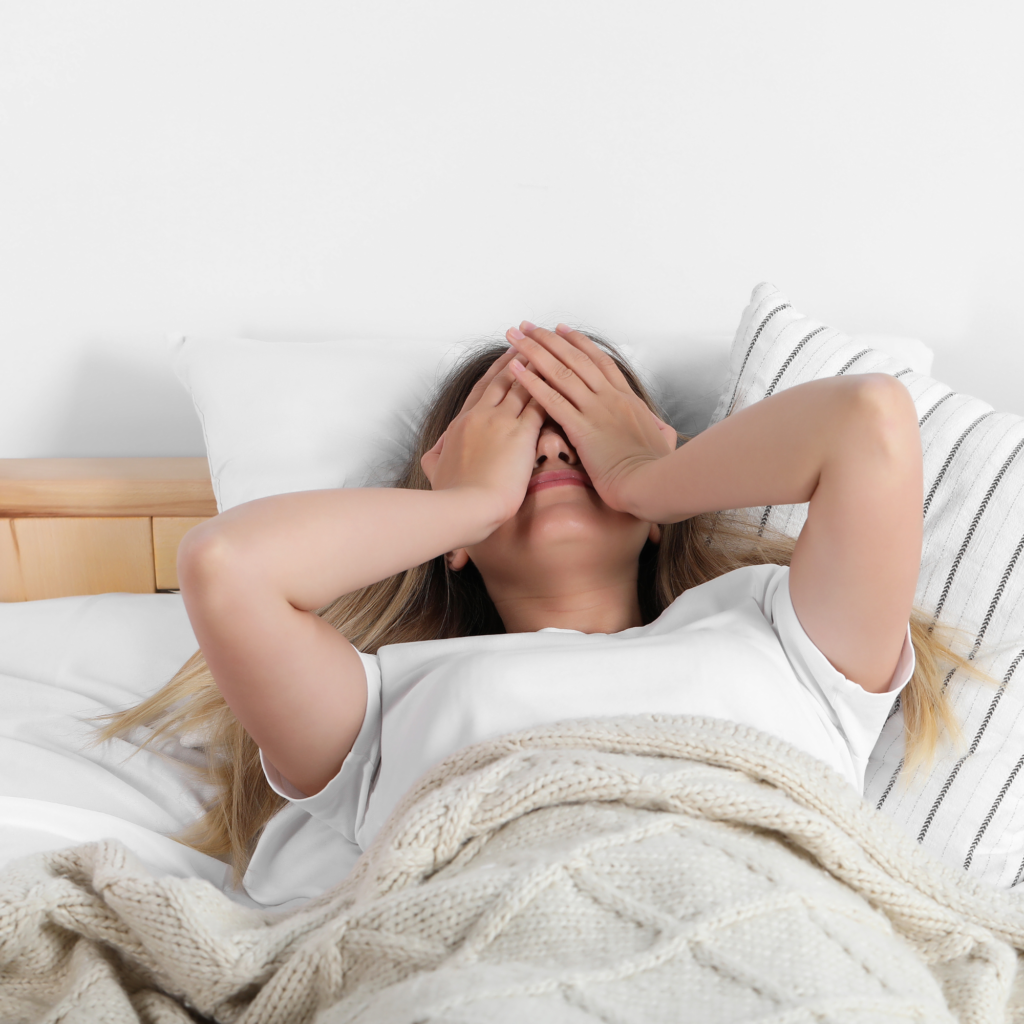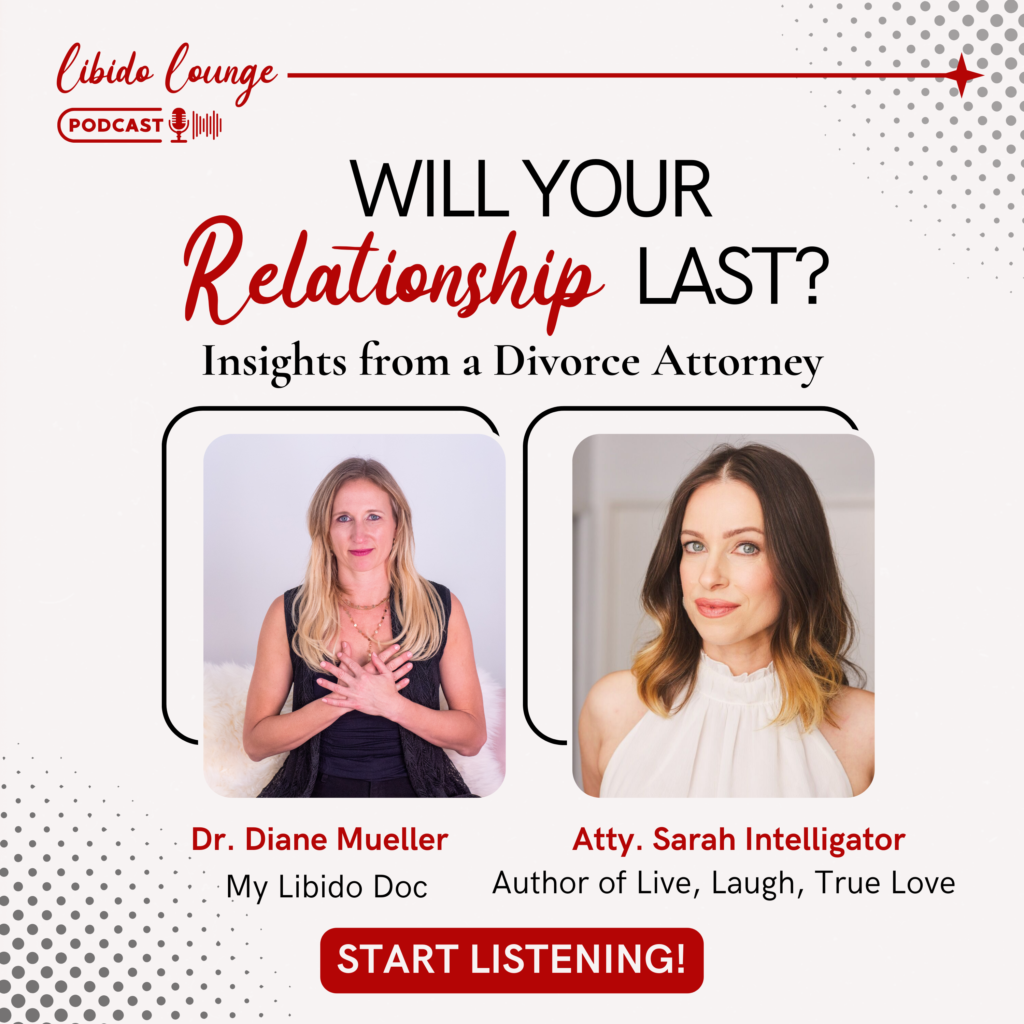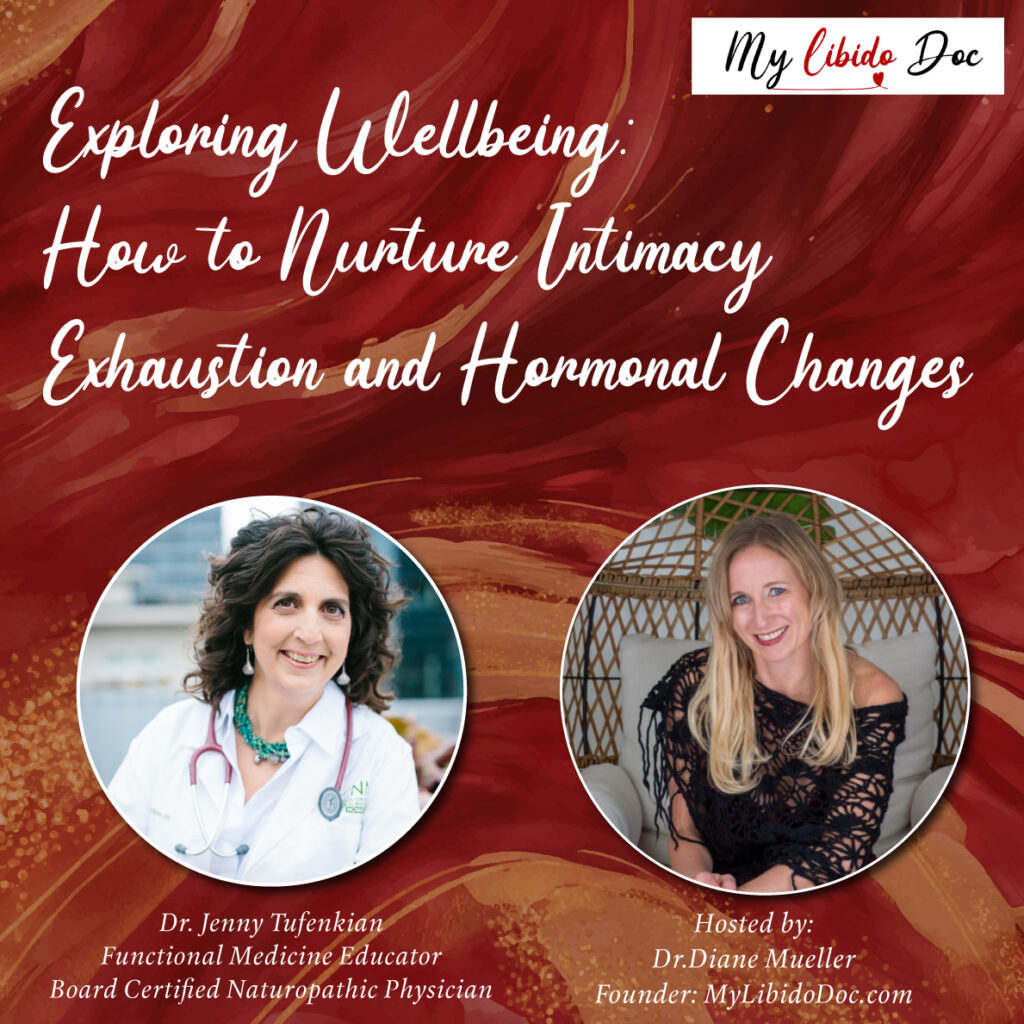Antidepressants that do not affect libido
Finding antidepressants that do not impact libido is not easy. Antidepressants are a common medication used to treat various mental health conditions, such as depression, anxiety, and obsessive-compulsive disorder. While these medications can sometimes be effective at alleviating symptoms, they can also come with a range of potential side effects. One common concern among patients who take antidepressants is the effect that these medications can have on their libido, or sexual desire. For more information on how to boost libido, read our blog: Female Libido Booster!

Libido is a complex phenomenon that is influenced by a variety of factors, including hormonal balance, psychological state, and external factors such as stress and relationship dynamics.
While there is no one-size-fits-all answer to the question of how antidepressants affect libido, there are some general trends and patterns that can be observed.
One of the most common classes of antidepressants, selective serotonin reuptake inhibitors (SSRIs), have been linked to a decrease in libido in some individuals. SSRIs work by increasing the availability of serotonin in the brain, which can help to regulate mood and reduce symptoms of depression and anxiety. SNRIs are similar class of drugs that will increase both serotonin and norepinephrine in the brain.
However, serotonin is also involved in the regulation of sexual function, and increasing its availability can sometimes lead to a decrease in sexual desire.
Other types of antidepressants, such as tricyclic antidepressants (TCAs) and monoamine oxidase inhibitors (MAOIs), may also have an impact on libido. TCAs have been associated with both increases and decreases in libido, while MAOIs may lead to a decrease in sexual desire.
It is worth noting that not all individuals who take antidepressants will experience a decrease in libido. However, some research shows that in those that get impacted by taking these sorts of antidepressant medications, the libido does not return even years after discontinuation of the medication.
There may be a lack of desire, but also genital numbness or inability to reach orgasm and pleasure that may occur not only during the time of these medications, but for years afterwards. This is something that is not being talked about and really needs more attention.
Natural antidepressant supplements such as 5htp, SAMe, B6, Tyrosine, Bacopa and more can often times be a wonderful support to mood without creating side effects. Often times with depression, a vicious cycle gets created. Libido goes down because we are depressed. But without libido, we are missing a major way of releasing oxytoxin, the love hormone. When we release oxytoxin, it helps mood and it lowers cortisol the stress hormone. When we have less connection and less stress resilience, we can get more depressed and the cycle continues.
Depression and decreased libido often go hand in hand, with nearly 30 to 40 percent of patients reporting a drop in sexual desire during treatment. Yet, it’s important to remember not all antidepressants are created equal. Some, as we’ll explore, may have less impact on your sexual desire than others. Exploring antidepressants that do not affect libido can be tricky – we’ll dive in. So, if you’re grappling with depression and looking to understand which antidepressants that do not affect libido, you’re in the right place.
One common concern among patients who take antidepressants is the effect that these medications can have on their libido, or sexual desire. For more information on how to boost libido, read our blog: Female Libido Booster!

Overcome Depression, Anxiety and Low Libido: Take Our Masterclass!
Table of Contents
Key Takeaways
- Not all antidepressants negatively affect libido. It’s a myth that all antidepressants have a serious side effect of decreasing sexual desire. Some have less of such an impact than others and individual body chemistry will also determine how these medications impact libido.
- The type of antidepressants impacts the libido differently. While SSRIs and SNRIs are known to cause some form of sexual dysfunction, antidepressants like Bupropion (Wellbutrin) and Mirtazapine (Remeron) report low incidences of sexual side effects.
- Various strategies can help manage the sexual side effects of antidepressants without compromising the treatment course. Techniques include adjusting medication timing and dosage, implementing lifestyle changes, and considering additional treatment options for antidepressant-induced sexual dysfunction.
- Exploring alternative solutions like dosage adjustments, medication timing, medication holidays, and medication switching can significantly reduce the sexual side effects of antidepressants. It’s important, however, to discuss with healthcare providers before making any significant changes in the treatment strategy.
- Despite existing challenges and limitations, it’s evident that proper communication with healthcare providers, tailored treatment plans focusing on mental health and sexual well-being, lifestyle modifications, and possible medication adjustments can mitigate sexual dysfunction induced by antidepressants.



Overcome Depression, Anxiety and Low Libido: Take Our Masterclass!
Common Myths and Misunderstandings
Let’s address some common misconceptions that often surround antidepressants and libido. For starters, you might believe that all antidepressants have the grave side effect of decreasing sexual desire. This, but, is a prevalent myth. Not all antidepressants are equal in this regard, and some have less of an effect on libido than others.
For example, Mirtazapine presents an interesting case. According to a 2002 study published in J Psychiatr Res, it was used as augmentation therapy for serotonin reuptake-associated female sexual dysfunction. The results of this research debunk the common belief that all antidepressants dampen sexual desire.
Contrary to popular belief, it’s not only the type of antidepressant but also an individual’s unique body chemistry that plays a role in how these medications impact libido. A 1998 journal article in Psychother Psychosom shared findings on the successes of oral sildenafil in managing antidepressant-induced sexual dysfunction. This further demonstrates the variability in how individuals respond to different treatment options.
At the end of the day, it’s about finding a balance. It’s important to speak openly to your healthcare provider about your concerns, as they can customize a treatment plan that fits your individual needs while taking both your mental health and sexual well-being into account.
Understanding Types of Antidepressants and Libido
Let’s investigate deeper into the types of antidepressants and how they might affect your libido:
SNRIs (Serotonin and Norepinephrine Reuptake Inhibitors)
SNRIs boost both serotonin and norepinephrine neurotransmitters in your brain. By doing so, they improve mood and resilience to stress. But, it’s been found that 58 to 70% of individuals taking SNRIs experience some sexual side effects. While these numbers might sound daunting, remember they affect everyone differently. So, it’s still within the area of possibility that they might be the right choice for you without affecting your libido.
SSRIs (Selective Serotonin Reuptake Inhibitors)
SNRIs boost both serotonin and norepinephrine neurotransmitters in your brain. By doing so, they improve mood and resilience to stress. But, it’s been found that 58 to 70% of individuals taking SNRIs experience some sexual side effects. While these numbers might sound daunting, remember they affect everyone differently. So, it’s still within the area of possibility that they might be the right choice for you without affecting your libido.
SSRIs (Selective Serotonin Reuptake Inhibitors)
Contrarily, SSRIs impact serotonin – a neurotransmitter responsible for mood – in your brain. This regulation of mood can significantly reduce symptoms of anxiety and depression. But there’s a catch; between 25 to 75% of people who take an SSRI experience some form of sexual dysfunction. This dysfunction ranges from loss of sexual desire, decreased arousal to erectile dysfunction in males and vaginal dryness in females. Yet, not everyone prescribed SSRIs notices a decline in libido.
Tricyclic Antidepressants (TCAs)
TCAs provide another depression treatment path that’s usually pursued if SSRIs or SNRIs don’t yield desired results. It’s noteworthy that TCAs have produced both libido increases and decreases in past patients. So, the changes you experience might vary depending on factors like individual body chemistry and the specific TCAs prescribed.
Monoamine Oxidase Inhibitors (MAOIs)
MAOIs work as a last resort when other antidepressants haven’t shown improvement. Unfortunately, consumption of MAOIs may lead to a decrease in sexual desire. This fact serves as an essential point to discuss with your healthcare provider while considering treatment options.
Natural Antidepressant Supplements
Finally, natural antidepressants, such as 5HTP, SAMe, B6, Tyrosine, and Bacopa, tend to support mood improvement without bringing forth any side effects. They can help break the vicious cycle created by depression where reduced libido causes diminished release of oxytocin (love hormone), leading to increased cortisol levels (stress hormone) and hence aggravating depression.
Strive to find a balance between mental health treatment and maintaining a healthy sex life and may take some trial and error – work with your healthcare provider about concerns or unintended consequences so your treatment plan can evolve with your needs.
Antidepressants Known for Minimal Impact on Libido
Antidepressants have become tragically notorious for their adverse effect on libido. But, certain types have been found to inflict considerably less sexual havoc than others. This section presents antidepressants renowned for having the least impact on libido.
Antidepressants With Lower Rates of Sexual Side Effects
According to studies, some antidepressants possess relatively low sexual side effect incidences. Examples of these include the likes of Bupropion (Wellbutrin) and Mirtazapine (Remeron). Bupropion works by inhibiting the uptake of dopamine and norepinephrine, deviating from the serotonin-centric mechanism common among SSRIs and SNRIs. In contrast, Mirtazapine blocks specific serotonin and adrenergic receptors. As per research, the possibility of sexual side effects with Bupropion hovers around 6-8%, while with Mirtazapine, it’s approximately 24%.
Comparing Sexual Side Effects Across Different Antidepressants
Comparatively, SSRIs and SNRIs tend to result in a higher rate of sexual side effects. Reported sexual dysfunction for SSRIs can range between 25 to 75% and for SNRIs, it’s around 58 to 70%. This stark contrast underlines the importance of consulting your healthcare provider for a personalized treatment plan tailor-made to your individual challenges, concerns, and lifestyle. Remember, open communication is the key to optimizing mental health treatment and managing potential side effects effectively.
When treating depression, it’s paramount to strike a balance between mental health treatment and preserved sexual well-being. Understanding how your – might affect your sex life is a vital part of managing potential side effects, so it’s always beneficial to have these frank discussions with your clinician.
Managing Sexual Side Effects Without Compromising Treatment
Now let’s cover the potential impact of antidepressants on libido, let’s jump into managing any sexual side effects. Yes, it’s possible to handle these complications without disrupting your treatment routine. This section reveals the practical approaches you can take to deal with sexual side effects while maintaining your mental health.
Strategies to Mitigate Sexual Side Effects
There are a variety of strategies to minimize these sexual complications. Firstly, consider the timing: Simply adjusting the time you take your – might help. For instance, try taking it after intimate relation if it doesn’t interfere with sleep.
Aside from timing, you can discuss with your healthcare provider the possibility of lowering your dosage. But, remember, efficiency first — your mental health should never be compromised for sexual wellness.
Also, consider lifestyle changes such as regular exercises, diet adjustments, and eliminating alcohol or nicotine can often help improve sexual well-being.
Finally, there are additional treatment options available for antidepressant-induced anorgasmia. Drugs such as Ciproheptadine, Buspirone, Yohimbine, Amantadine, Metilphenidate, Bupropion, and Mirtazapine, serve as add-on treatments that may help mitigate the sexual dysfunctions. Each of these works uniquely, carrying different dosages and mechanisms of action, so ensure you’re under your healthcare provider’s guide when trying these out.
When to Consult Your Healthcare Provider
It’s tempting to solve every sexual complication on your own, but it’s essential to engage your healthcare provider early and frequently. Got questions about sexual side effects? Don’t hesitate to ask during your next appointment. They’re available to guide you through this journey, bear in mind, every step you take should be in consultation with your healthcare provider. **Let them know if an alternative antidepressant with lower sexual side effects is an option you’re interested in exploring.**
Alternatives and Add-Ons That Reduce Sexual Side Effects
There are alternative options you can explore to reduce the sexual side effects of antidepressants.
The Role of Dosage Adjustments and – Timing
Fiddling with – dosage often alters the sexual side effects. SNRIs, just as SSRIs, raise serotonin and norepinephrine levels in the brain. If you’re on an SNRI, and sexual side effects have become a problem, consult your healthcare provider about dosage adjustments. Also, timing your – can make a significant impact. For instance, administering – a few hours before sex instead of taking it first thing in the morning.
Potential Benefits of – Holidays
For certain individuals, an SSRI-induced decrease in libido might signal the need for a “- holiday.” SSRIs function by enhancing serotonin availability in the brain, which helps stabilize mood and reduce depression and anxiety symptoms. A – holiday implies temporarily discontinuing your antidepressants. This might bring about a significant reduction in sexual side effects, although it’s not suitable for everyone. Always discuss this option with your healthcare provider since abrupt discontinuation of these medications can lead to withdrawal symptoms and a resurgence of depression.
Switching Medications: A Viable Option?
Switching medications might be an option for those grappling with antidepressant-induced sexual dysfunction. Before making any switches, it’s critical to consult your healthcare provider. They can guide you on the best course of action, ensuring your mental health isn’t jeopardized while solving your sexual concerns. It’s important to remember different antidepressants have unique side effects; a – that works perfectly for one person might not have the same favorable outcome for another.
Conclusion
So, in short, some antidepressants like Bupropion and Mirtazapine – and maybe Desvenlafaxine – might not hit your libido as hard. But remember, everyone’s different, so it’s all about finding what works best for you. They also suggest tweaking the dosage and when you take your meds to lessen any sexual side effects, but definitely get your doc involved in that conversation. It’s all about finding the right balance for your mental health and sex life.





